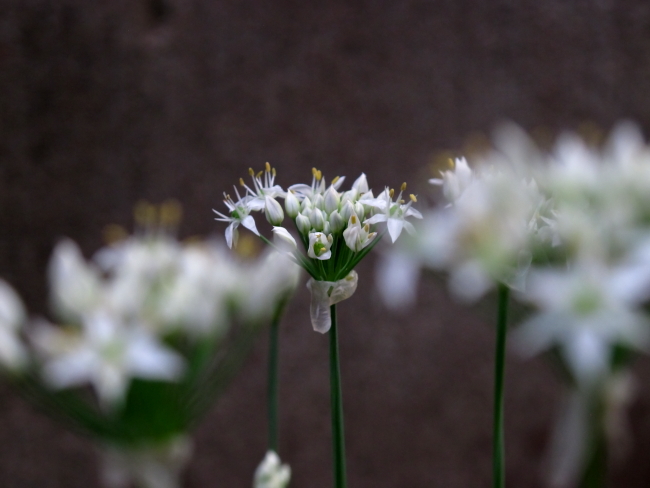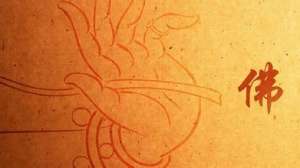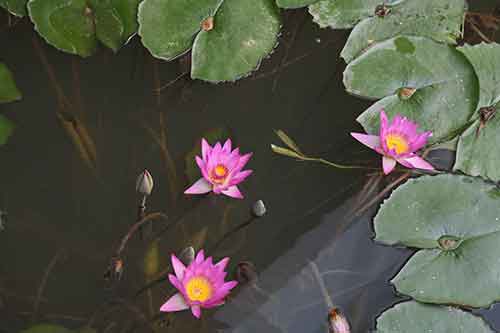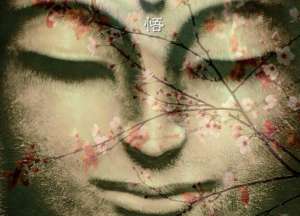孔子经典名言名句精选(英汉对照)
发布时间:2022-10-29 06:08:26作者:阿弥陀经抄写网
孔子经典名言名句精选(英汉对照)
孔子名言精选(英汉对照)
孔子与孟子并称“孔孟”,他们的思想并称为孔孟之道。孔子被尊为“至圣”“素王”,曾子则为宗圣。孔子名言无数,下面古典文学网精选了孔子的名言,并提供英汉对照,供广大孔子爱好者欣赏。
唯女子与小人,为难养也。近之则不孙,远之则怨。
Of all people, girls and servants are the most difficult to behave to. If you are familiar with them, they lose their humility. If you maintain a reserve towards them, they are discontented.
父母在,不远游,游必有方。
While his parents are alive, the son may not go abroad to a distance. If he does go abroad, he must have a fixed place to which he goes.
德不孤,必有邻。
Virtue is not left to stand alone. He who practices it will have neighbors.
吾十有五而志于学,三十而立,四十而不惑,五十而知天命,六十而耳顺,七十而从心所欲,不逾矩。
At fifteen I set my heart upon learning. At thirty, I planted my feet firm upon the ground. At forty, I no longer suffered from perplexities . At fifty, I knew what the biddings of Heaven were. At sixty, I heard them with docile ear. At seventy, I could follow the dictates of my own heart; for what I desired no longer overstepped the boundaries of right.
贤哉回也!一箪食,一瓢饮,在陋巷,人不堪其忧,回也不改其乐。贤哉回也! 更多孔子名言敬请关注古典文学网的相关文章。
Incomparable indeed was Hui! A handful of rice to eat, a gourdful of water to drink, living in a mean street. Others would have found it unendurably depressing, but to Hui's cheerfulness it made no difference at all. Incomparable indeed was Hui.
知者乐水,仁者乐山。知者动,仁者静。知者乐,仁者寿。
The wise find pleasure in water; the virtuous find pleasure in hills. The wise are active; the virtuous are tranquil. The wise are joyful; the virtuous are long-lived.
逝者如斯夫,不舍昼夜。
It passes on just like this, not ceasing day or night!
食不厌精,脍不厌细。
He did not dislike to have his rice finely cleaned, nor to have his minced meat cut quite small.
非礼勿视,非礼勿听,非礼勿言,非礼勿动。
Look not at what is contrary to propriety; listen not to what is contrary to propriety; speak not what is contrary to propriety; make no movement which is contrary to propriety.
有朋自远方来,不亦乐乎?
Is it not delightful to have friends coming from distant quarters?
人不知而不愠,不亦君子乎?
Is he not a man of complete virtue, who feels no discomposure though men may take no note of him?
父在,观其志。父没,观其行。
While a man's father is alive, look at the bent of his will; when his father is dead, look at his conduct. If for three years he does not alter from the way of his father, he may be called filial.
不患人之不己知,患不知人也。
I will not be afflicted at men's not knowing me; I will be afflicted that I do not know men.
诗三百,一言以蔽之,曰:思无邪。
In the Book of Poetry are three hundred pieces, but the design of them all may be embraced in one sentence-- “Having no depraved thoughts.”
关睢乐而不淫,哀而不伤。
The Kwan Tsu is expressive of enjoyment without being licentious, and of grief without being hurtfully excessive.
人无远虑,必有近忧。
If a man take no thought about what is distant, he will find sorrow near at hand.
君子有三戒。少之时,血气未定,戒之在色。及其壮也,血气方刚,戒之在斗。及其老也,血气既衰,戒之在得。
There are three things which the superior man guards against. In youth, when the physical powers are not yet settled, he guards against lust. When he is strong and the physical powers are full of vigor, he guards against quarrelsomeness (n. 喜吵架)。 When he is old, and the animal powers are decayed, he guards against covetousness.
性相近也,习相远也。
By nature, men are nearly alike; by practice, they get to be wide apart.
过而不改,是谓过矣。
Not to mend the fault one has made is to err indeed.
己所不欲,勿施于人。
What you do not want done to yourself, do not do to others.
言必信,行必果。
Keep what you say and carry out what you do.
君子以文会友,以友辅仁。
The superior man on grounds of culture meets with his friends, and by their friendship helps his virtue.
三军可夺师也,匹夫不可夺志也。更多孔子名言敬请关注古典文学网的相关文章。
The commander of the forces of a large State may be carried off, but the will of even a common man cannot be taken from him.
后生可畏,焉知来者之不如今也?
A youth is to be regarded with respect. How do you know that his future will not be equal to our present?
孔丘 (前551年9月28日<农历八月廿七>~前479年4月11日<农历二月十一>),字仲尼。排行老二, 汉族人,春秋时期鲁国人。孔子是我国古代伟大的思想家和教育家,理论政治家,儒家学派创始人,世界最著名的文化名人之一。编撰了我国第一部编年体史书《春秋》。据有关记载,孔子出生于鲁国陬邑昌平乡(今山东省曲阜市东南的南辛镇鲁源村);孔子逝世时,享年73岁,葬于曲阜城北泗水之上,即今日孔林所在地。孔子的言行思想主要载于语录体散文集《论语》及先秦和秦汉保存下的《史记·孔子世家》。
孔子与孟子并称“孔孟”,他们的思想并称为孔孟之道。孔子被尊为“至圣”“素王”,曾子则为宗圣。孔子名言无数,下面古典文学网精选了孔子的名言,并提供英汉对照,供广大孔子爱好者欣赏。
唯女子与小人,为难养也。近之则不孙,远之则怨。
Of all people, girls and servants are the most difficult to behave to. If you are familiar with them, they lose their humility. If you maintain a reserve towards them, they are discontented.
父母在,不远游,游必有方。
While his parents are alive, the son may not go abroad to a distance. If he does go abroad, he must have a fixed place to which he goes.
德不孤,必有邻。
Virtue is not left to stand alone. He who practices it will have neighbors.
吾十有五而志于学,三十而立,四十而不惑,五十而知天命,六十而耳顺,七十而从心所欲,不逾矩。
At fifteen I set my heart upon learning. At thirty, I planted my feet firm upon the ground. At forty, I no longer suffered from perplexities . At fifty, I knew what the biddings of Heaven were. At sixty, I heard them with docile ear. At seventy, I could follow the dictates of my own heart; for what I desired no longer overstepped the boundaries of right.
贤哉回也!一箪食,一瓢饮,在陋巷,人不堪其忧,回也不改其乐。贤哉回也! 更多孔子名言敬请关注古典文学网的相关文章。
Incomparable indeed was Hui! A handful of rice to eat, a gourdful of water to drink, living in a mean street. Others would have found it unendurably depressing, but to Hui's cheerfulness it made no difference at all. Incomparable indeed was Hui.
知者乐水,仁者乐山。知者动,仁者静。知者乐,仁者寿。
The wise find pleasure in water; the virtuous find pleasure in hills. The wise are active; the virtuous are tranquil. The wise are joyful; the virtuous are long-lived.
逝者如斯夫,不舍昼夜。
It passes on just like this, not ceasing day or night!
食不厌精,脍不厌细。
He did not dislike to have his rice finely cleaned, nor to have his minced meat cut quite small.
非礼勿视,非礼勿听,非礼勿言,非礼勿动。
Look not at what is contrary to propriety; listen not to what is contrary to propriety; speak not what is contrary to propriety; make no movement which is contrary to propriety.
有朋自远方来,不亦乐乎?
Is it not delightful to have friends coming from distant quarters?
人不知而不愠,不亦君子乎?
Is he not a man of complete virtue, who feels no discomposure though men may take no note of him?
父在,观其志。父没,观其行。

While a man's father is alive, look at the bent of his will; when his father is dead, look at his conduct. If for three years he does not alter from the way of his father, he may be called filial.
不患人之不己知,患不知人也。
I will not be afflicted at men's not knowing me; I will be afflicted that I do not know men.
诗三百,一言以蔽之,曰:思无邪。
In the Book of Poetry are three hundred pieces, but the design of them all may be embraced in one sentence-- “Having no depraved thoughts.”
关睢乐而不淫,哀而不伤。
The Kwan Tsu is expressive of enjoyment without being licentious, and of grief without being hurtfully excessive.
人无远虑,必有近忧。
If a man take no thought about what is distant, he will find sorrow near at hand.
君子有三戒。少之时,血气未定,戒之在色。及其壮也,血气方刚,戒之在斗。及其老也,血气既衰,戒之在得。
There are three things which the superior man guards against. In youth, when the physical powers are not yet settled, he guards against lust. When he is strong and the physical powers are full of vigor, he guards against quarrelsomeness (n. 喜吵架)。 When he is old, and the animal powers are decayed, he guards against covetousness.
性相近也,习相远也。
By nature, men are nearly alike; by practice, they get to be wide apart.
过而不改,是谓过矣。
Not to mend the fault one has made is to err indeed.
己所不欲,勿施于人。
What you do not want done to yourself, do not do to others.
言必信,行必果。
Keep what you say and carry out what you do.
君子以文会友,以友辅仁。
The superior man on grounds of culture meets with his friends, and by their friendship helps his virtue.
三军可夺师也,匹夫不可夺志也。更多孔子名言敬请关注古典文学网的相关文章。
The commander of the forces of a large State may be carried off, but the will of even a common man cannot be taken from him.
后生可畏,焉知来者之不如今也?
A youth is to be regarded with respect. How do you know that his future will not be equal to our present?
孔丘 (前551年9月28日<农历八月廿七>~前479年4月11日<农历二月十一>),字仲尼。排行老二, 汉族人,春秋时期鲁国人。孔子是我国古代伟大的思想家和教育家,理论政治家,儒家学派创始人,世界最著名的文化名人之一。编撰了我国第一部编年体史书《春秋》。据有关记载,孔子出生于鲁国陬邑昌平乡(今山东省曲阜市东南的南辛镇鲁源村);孔子逝世时,享年73岁,葬于曲阜城北泗水之上,即今日孔林所在地。孔子的言行思想主要载于语录体散文集《论语》及先秦和秦汉保存下的《史记·孔子世家》。



